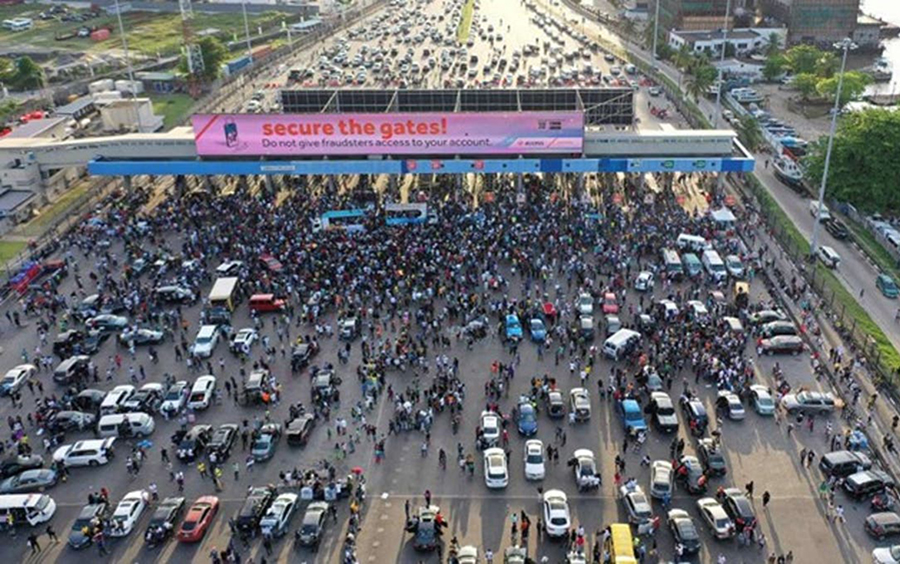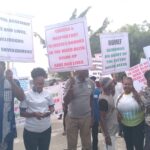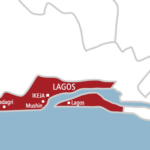“History doesn’t repeat itself, but it often rhymes”.
This phrase, often attributed to the American humorist and public commentator Mark Twain, has for the past few weeks itself been rhyming in my head. Since the reported shooting of unarmed protesters at Lekki Tollgate in Lagos, I saw the Zaria massacre playbook put to use almost page-by-page. Every twist and turn; every denial and excuse; every confession and avoidance. It all looks very much like the movie that played out in Zaria half a decade ago.
- Pay Our Outstanding Salaries, We’ll Resume Work, ASUU Tells FG
- ‘Dangote Refinery 80 Per Cent Completed’
Two weeks ago, we watched in real-time a horror that triggered international outrage. DJ Switch, a popular performer, live-streamed the gunning down of unarmed protesters, singing our national anthem and waving our flag, by men in Nigerian army uniforms and driving army vehicles. She reported that, after the shooting, soldiers took away at least 15 corpses before the police arrived to mop up. Both Governor Babajide Sanwo-Olu of Lagos State and the Nigerian Army initially denied the incident, but their conflicting stories soon sent each other’s lies crashing like a house of cards.
The army first claimed that they hadn’t been at the scene of the shooting, but admitted a week later that this was untrue. This U-turn was forced upon them by Sanwo-Olu telling CNN that it was the army that shot the protesters – that statement itself contradicting his earlier claim that there had been no deaths. In retaliation, the army claimed they had been asked by the governor himself to “restore normalcy”, but insisted that they didn’t even open fire, much less kill anyone.
As tragic as it is, this incident is far from unprecedented. When soldiers killed hundreds of members of the Islamic Movement in Nigeria (IMN) in December 2015, they initially claimed to have killed only seven and wounded 10. A Judicial Commission of Inquiry (JCI) set up by the Kaduna State government found months later that the army killed at least 348, including children in school uniform, and wounded 66. They buried all the bodies – men, women and children – in a single mass grave in violation of Islamic traditions, Kaduna State burial laws and the Geneva Convention.
In a chilling report, Amnesty International revealed how the army attempted to cover up their crimes in Zaria: they sealed off the scene of the carnage and took away the bodies, razed the grounds, removed the rubbles, swept spent cartridge and washed off the bloodstains. The JCI found that the army took 156 of the corpses to the Ahmadu Bello Teaching Hospital, which they cordoned off for days, and hid the remaining 191 at the Nigerian Army Depot in Zaria.
With this on my mind, it was little surprise to read that the military has denied members of the new JCI established to investigate the Lekki scandal access to the army hospital mortuary at Ikoyi. The Zaria commission documented with disapproval how the army contemptuously defied the inquiry and refused to provide vital information.
The attempt to conceal evidence at Lekki started hours before the incident when protesters raised the alarm that CCTV cameras at the tollgate have been removed by some people claiming to be government agents. And just before the shooting started, lights around the tollgate were turned off. These facts were denied by the governor, but the company managing the tollgate testified before the JCI that the cameras only recorded until 8pm of the fateful night, after which they were “tampered with”. The witness didn’t identify who ‘tampered’ with the cameras, but when placed alongside the rest of the evidence, it is clear.
But even if soldiers are found to be responsible for the scandal at Lekki and named by the JCI, bringing them to justice will be another mountain to climb. After the Zaria massacre, the JCI found that the army acted on verbal orders of the General Commanding Officer of 1 Division, acting in contravention of sections 8 of the Armed Forces Act and 218 of the Constitution. The JCI also found that, contrary to their Rules of Engagement, soldiers used disproportionate force, and it recommended that “members of the Nigerian Army found to have been involved in the killings should be brought to trial before a court of competent jurisdiction”.
Over four years after the JCI’s report, no soldier has even been disciplined for killing IMN members, still less charged or brought to trial. To add insult to injury, the leader of the IMN, whose three sons were killed in the incident, was arrested in the wake of the event and has been in detention, along with his wife, since then. We’ve started reading reports of #EndSARS protesters being hunted by security agencies and their passports confiscated to stop them from travelling abroad. Many protesters are reported to be in custody of the police, and victims of the shooting are untreated because pressure has been brought to bear on hospitals to turn them away. Another Zaria is unfolding right before our eyes.
But we have the power to stop this one. Thankfully, Nigerians are much smarter than five years ago. Zaria will be much more difficult to repeat. The footage of the horror that went viral on social media has since been forensically proven genuine by the U.S.-based Digital Forensic Lab. Amnesty International and Premium Times have both corroborated DJ Switch’s claims based on separate detailed investigations, including testimonies of survivors and witnesses. All this will be invaluable to the inquiry. But they need someone to collate and present them to the JCI.
More broadly, if we keep up the domestic and international media scrutiny, the JCI will have no option but ensure that no stone is left unturned. If the international community makes good on its promise of closely monitoring the situation, the federal government will be forced to bring indicted personnel to justice. If we let the momentum fizzle away and move on, history will continue to rhyme. And the same history will never forgive us.

 Join Daily Trust WhatsApp Community For Quick Access To News and Happenings Around You.
Join Daily Trust WhatsApp Community For Quick Access To News and Happenings Around You.


